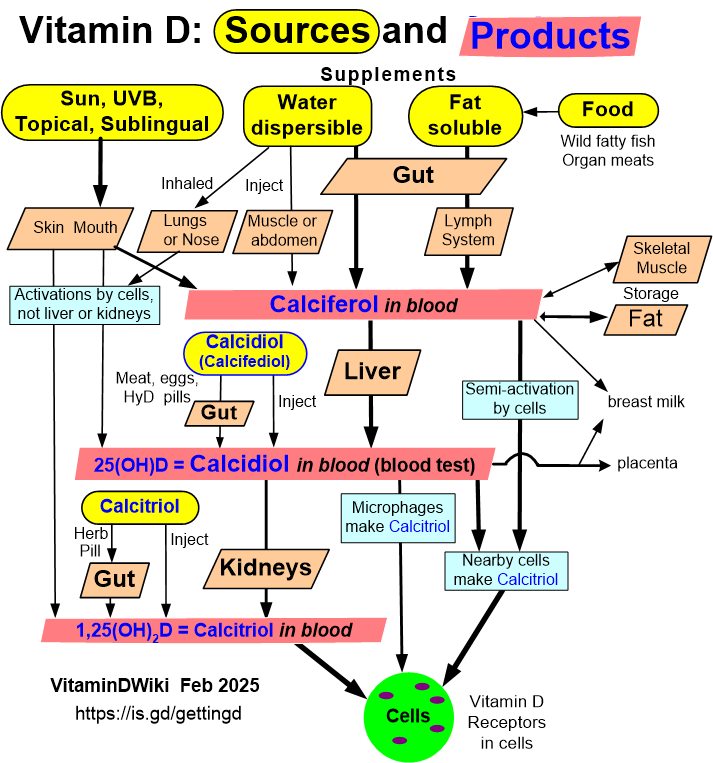Colitis treated by activated vitamin D getting into the colon via emulsion (mice)
Therapeutic effect of vitamin D3-containing nanostructured lipid carriers on inflammatory bowel disease.
J Control Release. 2018 Jul 12. pii: S0168-3659(18)30413-9. doi: 10.1016/j.jconrel.2018.07.019
Zai K1, Hirota M2, Yamada T2, Ishihara N2, Mori T3, Kishimura A4, Suzuki K2, Hase K5, Katayama Y6.
📄 Download the PDF from Vitamin D Life
Abstract is below the following box
 click on chart for detailsGut* IBS - many indications that Vitamin D will help - more research needed - March 2018* Gut bacteria of Crohn's disease patients improved by Vitamin D – March 2018* Perhaps activated Vitamin D helps both the gut and the gut bacteria* Overview Gut and vitamin D has the following summary{include}
click on chart for detailsGut* IBS - many indications that Vitamin D will help - more research needed - March 2018* Gut bacteria of Crohn's disease patients improved by Vitamin D – March 2018* Perhaps activated Vitamin D helps both the gut and the gut bacteria* Overview Gut and vitamin D has the following summary{include}Spleen was not as enlarged with activated vitamin D emulsion

The active form of vitamin D3, 1,25(OH)2D3 has been found to exert multiple effects on the suppression of progression of inflammatory bowel disease (IBD). Vitamin D3 has been gathering attention as a therapy for IBD. However, the clinical trials conducted to date revealed that a relatively high dosage of vitamin D3 was required to see a significant therapeutic effect. Thus, effective formulation and delivery of vitamin D3 to colonic inflammatory lesions will be required. Herein we describe the preparation of a nanostructured lipid carrier (NLC) for the encapsulation of 1,25(OH)2D3 for colonic delivery via oral administration. The optimized fabrication procedure enabled the incorporation of 1,25(OH)2D3 in the NLC by minimizing the destruction of chemically unstable 1,25(OH)2D3. The obtained NLCs orally delivered 1,25(OH)2D3 to the colon in mice and maintained a high concentration of 1,25(OH)2D3 in the colonic tissue for at least 12 h. The NLC showed multiple effects on the suppression of symptoms of colitis induced by dextran sodium sulfate, namely maintaining crypt structure, reducing the tissue concentration of inflammatory cytokines, suppressing the infiltration of polymorphonuclear leukocytes, and augmenting anti-inflammatory CX3CR1high macrophages. Our NLCs containing 1,25(OH)2D3 may be an alternative treatment for IBD therapy.
